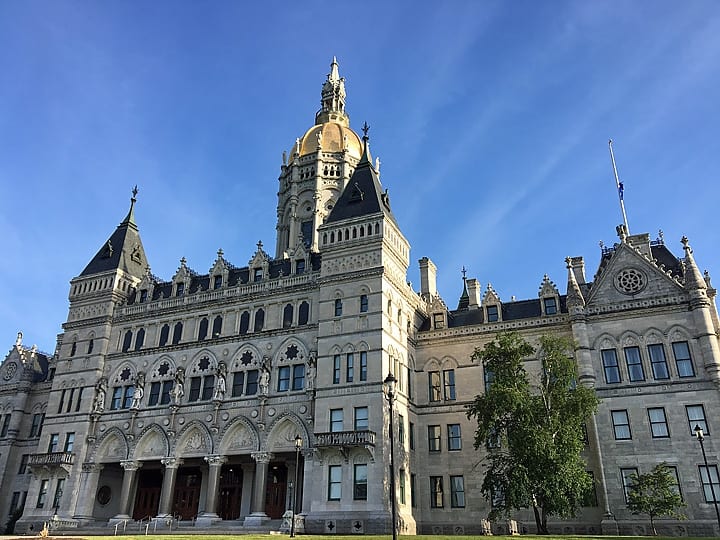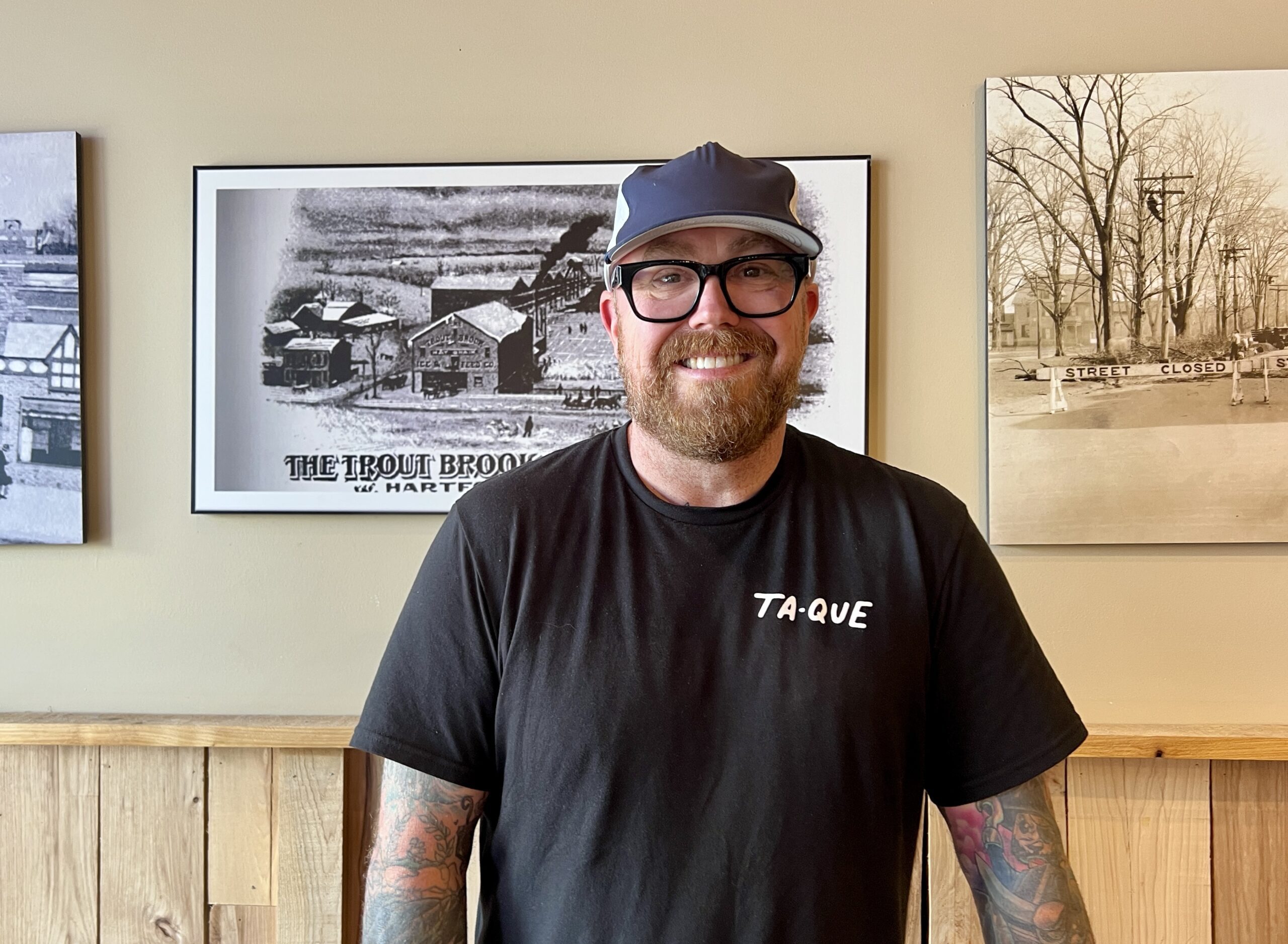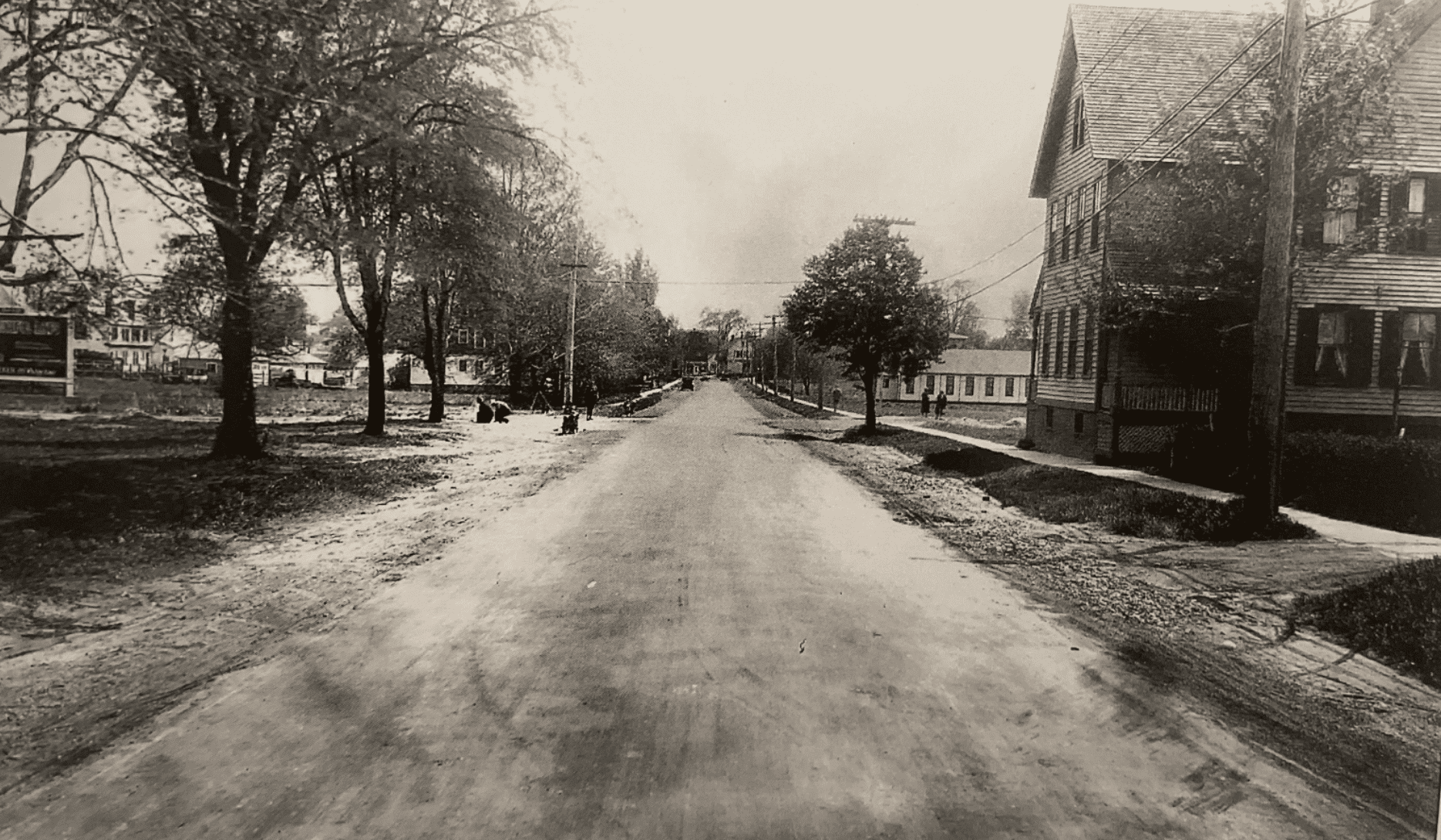Op-Ed: Why Connecticut Needs Zoning Reform

Audio By Carbonatix

State Capitol. CTNewsJunkie.com file photo (courtesy)
The Connecticut General Assembly Planning & Development Committee held a public hearing March 15 on SB 1024, An Act Concerning Zoning Authority, Certain Design Guidelines, Qualifications Of Certain Land Use Officials And Certain Sewage Disposal Systems. The following Op-Ed, a version of which was also submitted as testimony for the public hearing, was provided to We-Ha.com by West Hartford resident Emily Oumano.
By Emily Oumano
My middle school in Naugatuck once hosted a show as a special treat for the students. It was a juggling act with magic tricks. The performer happened to be Asian. While he was doing the show, a group of 12-year-olds in the audience kept singing a song at him, interrupting his act, and trying to distract him. Later, I found out the song was from a scene in some movie that mocked Asian people. I don’t remember what the song was, or which of my classmates sang along, but I remember seeing a group of at least three (maybe more) white students racially harassing a man in front of our entire grade.
If those kids had more diverse friends, teachers, and neighbors, maybe they wouldn’t have thought that was okay. Research shows integrated schools and cross-race friendships can help prevent children from developing prejudiced attitudes. But my peers and I grew up in Connecticut, one of the most racially segregated states in the country.
The kids who sang that song are now 30-year-old adults. They probably still don’t have diverse friendships. They probably still live in communities with neighbors who are mostly like them, and now they send their children to schools with kids who are mostly like them.
I’m white, and I grew up in a segregated Connecticut town, so I’m ashamed to say this way of life seemed normal to me when I was middle school. It wasn’t until I was older that I started to research how explicitly racist policies are perpetuated by our zoning laws.
In the 1930s and 40s, banks refused to approve home loans for houses in Black neighborhoods, and deed restrictions prevented white homeowners from selling to buyers who weren’t white. In the 50s and 60s, highway construction targeted some Black and integrated neighborhoods for demolition, and cut others off from resources. In the 70s, Connecticut real estate agencies discriminated against Black home buyers. Today, homes in Black neighborhoods tend to have lower appraised values than similar homes in white neighborhoods. Fair rent commissions continue to be underfunded, and widespread discrimination against people who use rental assistance persists.
We systematically denied minorities home loans, we forced them into certain neighborhoods, and then we devalued those neighborhoods. Then, as they were pushed into the rental market, we allowed discriminatory rental practices to flourish. Meanwhile, white people had more opportunities to buy property, build wealth, and pass their wealth on to their children. That is just one of the reasons why the racial wealth gap in Connecticut is worse than it is in the country as a whole. That is just one of the reasons why Connecticut is among most segregated states in the nation.
This is a prime example of systemic racism, but some refuse to acknowledge it. They instead prefer to call segregated neighborhoods the result of “settlement patterns” or “the natural evolution of our communities.” Or, if they do think it’s a problem, they certainly don’t think it’s important enough to try to make it right. And we must make it right, before our communities fall apart.
More multifamily homes could help solve these problems. Yet every time someone tries to build a condo, townhouse, or an apartment building (or even when a private homeowner wants to add a small apartment to their house) zoning boards in mostly white towns squash the effort.
Some point to the need for more parking and more utility services as reasons for why their town can’t build multifamily housing, then they block efforts to address these issues. They worry that new, mixed income homes will hurt the property value of existing homes, but research shows that is an unfounded fear.
They claim their communities shouldn’t have to welcome people who can’t afford to buy a house. They argue that the people who cook in their restaurants, stock their local stores’ shelves, and deliver their packages are good enough to work in their town, but they are not good enough to live there. They feel that discriminating on the basis of income is different from discriminating on the basis of race, even though economics and racism are closely intertwined. Whatever their reasons are, the impact is the same: they are using zoning laws to preserve segregation.
Everyone in every part of our state deserves a safe, comfortable, affordable place to live. We need more abundant housing, and more diverse types of housing in order to provide that. We also need more diverse communities.
I can’t say if our segregated town planted the seeds of bigotry in my classmates’ hearts, but I grew up there too, and I can confidently say it let the seeds take root. When you are part of a segregated system, you remain ignorant of the hardships faced by people outside of your community. That ignorance becomes indifference, and that indifference allows the system to perpetuate itself.
Back in middle school, when I witnessed that act of racism, I didn’t do anything about it. The school didn’t do anything. The parents of those kids didn’t do anything. Our community wasn’t as strong as the seeds of bigotry that grew there.
We have a chance to do something about it now. We must change our zoning laws to make it easier to build more types of homes, and increase our housing stock. This will make housing more affordable to more diverse Connecticut residents, and it will make our communities stronger.
We-Ha.com will accept Op-Ed submissions from members of the community. The views, opinions, positions, or strategies expressed by the author are theirs alone, and do not necessarily reflect the views, opinions, or positions of We-Ha.com. We reserve the right to edit all submitted content.
Like what you see here? Click here to subscribe to We-Ha’s newsletter so you’ll always be in the know about what’s happening in West Hartford! Click the blue button below to become a supporter of We-Ha.com and our efforts to continue producing quality journalism.




Article and pictures on Ace Hardware neglected to highlight their great kitchen section which is so handy for local
households!